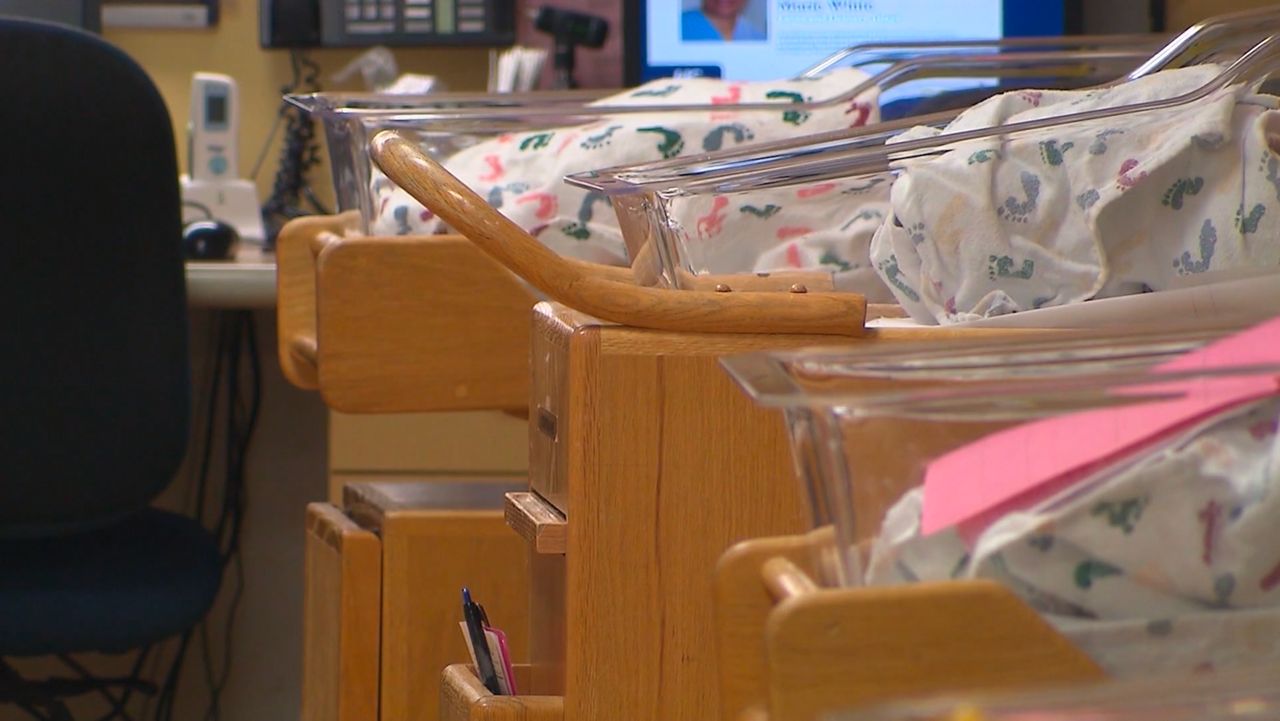City Council Speaker Adrienne Adams called pregnancy-related deaths in the city an urgent public health crisis at a news conference Wednesday. She announced a plan to bring together city, state and government officials, along with public health leaders, to work collectively towards finding solutions.
“Far too many Black women and others who can become pregnant suffer preventable life-threatening complications during pregnancy and childbirth that too often cost them their lives,” Adams said. “We are failing women during one of the most vulnerable periods in their lives.”
What You Need To Know
- Twenty New Yorkers die each year from preventable pregnancy-related causes, according to City Council Speaker Adrienne Adams
- Adams called the issue an urgent public health crisis and unveiled a plan to address longstanding maternal health issues in the city
- Adams acknowledged the death of a woman at Woodhull Hospital last month after an emergency c-section
In her announcement, Speaker Adams acknowledged Bevorlin Garcia Barris: a 24-year-old who died last month after an emergency c-section inside Brooklyn’s Woodhull Hospital. Her death is still under investigation.
City-run Woodhull Hospital has come under scrutiny in recent years after both Sha-Asia Semple and Christine Fields died shortly after emergency c-section surgery. A spokesperson for Woodhull said the hospital is working to improve maternal mortality rates.
Jose Perez, who was engaged to Christine Fields, believes “there’s definitely more the city can be doing.” Perez called the Council Speaker’s announcement a start.
“It’s been too late for Christine after Sha-Asia Washington, it’s been too late for Ms. Barrios after Christine, but it’s not too late for someone else,” Perez said.
“In New York City, Black patients are six times more likely to die from childbirth compared to their counterparts,” Dr. Desmond Sutton, a labor and delivery doctor at Mount Sinai West, said.
Dr. Sutton said he knows the root causes of maternal health disparities are complex.
“You have the issues specific to the patient themselves like what comorbidities they have, hypertension, diabetes,” Sutton said. “Then we have issues within the hospital: implicit bias, structural racism.”
Dr. Sutton believes turning around current maternal health disparities will require an all hands on deck approach.
“The more support we have from stakeholders and the government, the better, the more we can actually try to improve some of these,” Dr. Sutton said.











_PKG_SUNY_Downstate_Report_CLEAN)